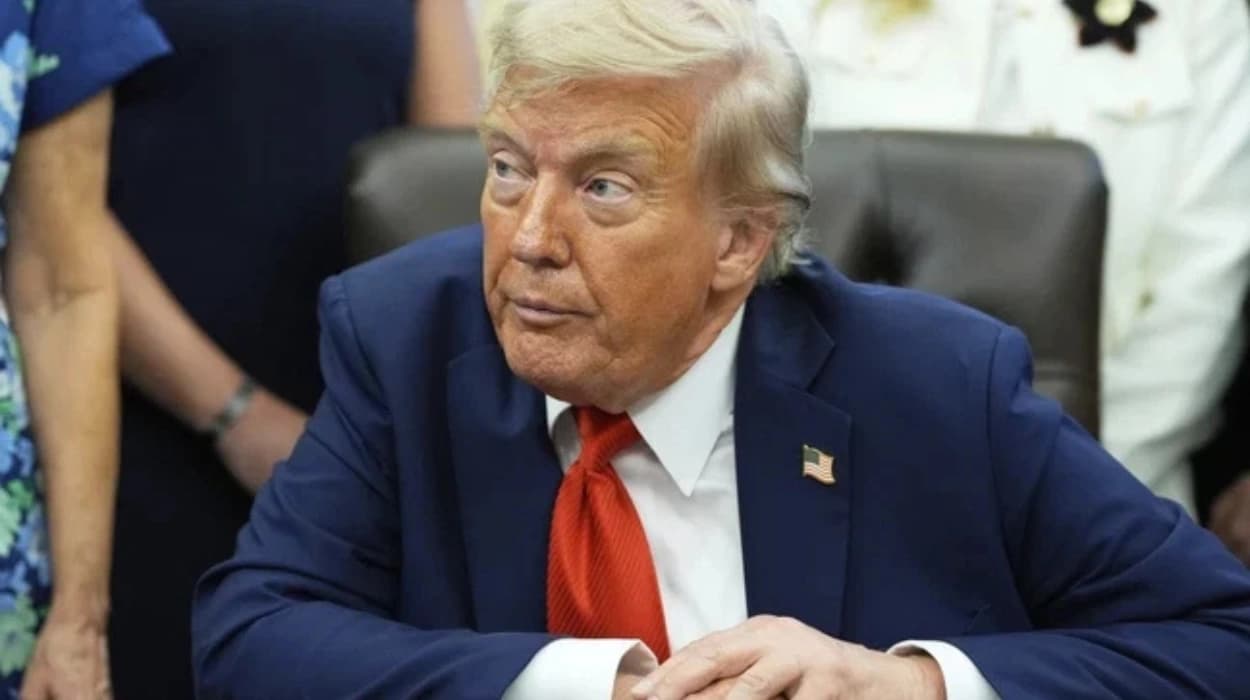Summary
- Trump calls Senate tradition “old and outdated.”
- Tradition lets home state senators approve judicial nominees.
- The Senate's “blue slip” allows senators to block nominees.
- Republicans defend blue slip for political and strategic reasons.
For weeks, Trump has been criticizing the so-called "blue slip" process, and he has pressured Chuck Grassley, a Republican from Iowa who chairs the Senate Judiciary Committee, to stop using it. The seasoned senator hasn't changed his mind, though.
Trump threatened to file a lawsuit on Monday, claiming that he could only have "weak" justices confirmed in states with at least one Democratic senator.
“This is based on an old custom. It’s not based on a law. And I think it’s unconstitutional,”
Trump told reporters.
“And I’ll probably be filing a suit on that pretty soon.”
Since the Senate sets its own rules, it's unclear who Trump would sue and how the case would go. Additionally, Senate Republicans have remained unapologetic, claiming that during Democrat Joe Biden's presidency, they took advantage of the process. They claim that if they are in the minority once more, they will want the practice to continue.
Republicans also note that judges who don’t receive approval from their home state senators are unlikely to have enough votes for confirmation, anyway.
“In Biden admin Republicans kept 30 LIBERALS OFF BENCH THAT PRES TRUMP CAN NOW FILL W CONSERVATIVES,”
Grassley posted on X shortly after Trump’s remarks on Monday.
North Carolina Sen. Thom Tillis, a Republican member of the judiciary committee, posted on X that getting rid of the blue slip “is a terrible, short-sighted ploy that paves the path for Democrats to ram through extremist liberal judges in red states over the long-term.”
Blue slips have also been defended by Senate Majority Leader John Thune, R-S.D., who has previously utilized the procedure himself and collaborated with the Biden administration during a South Dakota court vacancy.
“I don’t sense any rush to change it,”
Thune said.
When the president appoints someone to a federal job that is located in one state, such as a district judge or U.S. attorney, a blue slip, a blue-colored form, is sent to the senators of the two home states.
The senators from each home state have the option to return the slips with a good or negative answer. The chairman of the judiciary panel may decide not to proceed if the form is not returned or if there is a negative answer.
Alina Habba, a candidate for U.S. attorney in New Jersey, and two prosecutors nominated in New York who were denied by Senate Democratic Leader Chuck Schumer are among the Trump nominees that Democrats have opposed this year.
The Congressional Research Service claims that the blue slip tradition dates back to at least 1918. However, it has changed over time to become more partisan, like many Senate customs. Blue slips were also given to nominees to the circuit court, which has jurisdiction over several states, until 2017, at the start of Trump's first term. However, that custom was abandoned by the Republican-dominated judicial panel, which was then also led by Grassley.
Republicans have agreed with Trump that the nomination process should proceed more quickly, despite his defiance of his blue slips. This is especially true given that Democrats have slowed votes on all of Trump's choices.
Threatening to keep them in session the entire month of August, Trump and Republicans put pressure on Senate Democrats to release some of their holds on candidates before the customary August recess. However, the attempt failed, and the Senate departed town regardless, with Trump saying on social media that Schumer should "GO TO HELL!"
Following that impasse, Thune stated that the chamber will examine changes to Senate rules in the fall that would make it more difficult for Democrats to obstruct or delay confirmation votes.
“I think that the last six months have demonstrated that this process, nominations, is broken,”
Thune said.
“And so I expect there will be some good robust conversations about that.”
How do Republican senators defend senatorial courtesy now?
They argue that home-state senators have the best understanding of local needs, politics, and the qualifications of nominees from their states, making their input vital for sound appointments. Senators view senatorial courtesy as a long-established informal norm that fosters cooperation and respect among senators, contributing to the Senate’s collegiality and stability.
The tradition serves as an important check and balance on the president’s appointment power, ensuring nominations receive thorough vetting and local accountability.
Senators expect reciprocal respect for their own exercise of senatorial courtesy in their states, facilitating cooperation and support across states in future nomination decisions.

